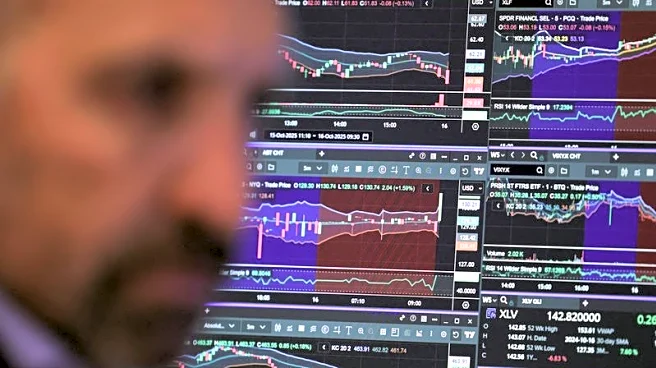What's Happening?
Beyond Meat, a company known for its plant-based meat alternatives, has experienced a dramatic surge in its stock price, rising over 1,000% in just four days. This increase follows the company's inclusion in Roundhill Investments' meme stock ETF, which
triggered a short squeeze, forcing investors betting against the company to buy shares to cover their losses. Additionally, Beyond Meat announced a distribution deal with Walmart, further boosting investor confidence. Despite these developments, the company has faced challenges with sluggish sales and has not posted a quarterly profit in over five years.
Why It's Important?
The surge in Beyond Meat's stock price highlights the influence of meme stock dynamics, where online enthusiasm among everyday investors can significantly impact market activity. This phenomenon raises questions about the stability and sustainability of such stock movements, as they often rely more on investor sentiment than on company fundamentals. The Walmart distribution deal could potentially increase Beyond Meat's market presence and consumer access, offering a chance for the company to improve its financial performance. However, the broader implications for the stock market include concerns about volatility and the potential for speculative bubbles.
What's Next?
Beyond Meat's future will likely depend on its ability to capitalize on the Walmart distribution deal and address its ongoing sales challenges. Investors and market analysts will be watching closely to see if the company can translate this stock surge into long-term growth and profitability. The meme stock phenomenon may continue to affect Beyond Meat and similar companies, prompting discussions among regulators and market participants about the need for oversight and the impact of social media on stock trading.
Beyond the Headlines
The rise of meme stocks like Beyond Meat underscores a shift in how retail investors engage with the stock market, often driven by online communities and platforms. This trend may lead to changes in market dynamics, with traditional valuation methods being challenged by new investor behaviors. The ethical considerations of such trading practices, including the potential for market manipulation and the risks to uninformed investors, could prompt further scrutiny and regulatory responses.
















